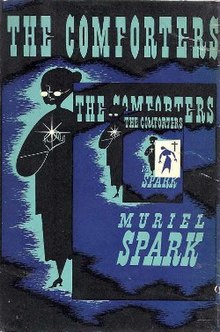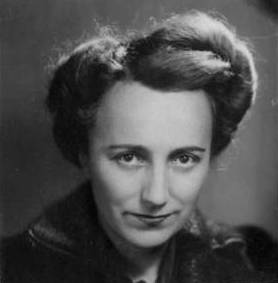
Anne Cécile Desclos was a French journalist and novelist who wrote under the pen names Dominique Aury and Pauline Réage. She is best known for her erotic novel Story of O (1954).
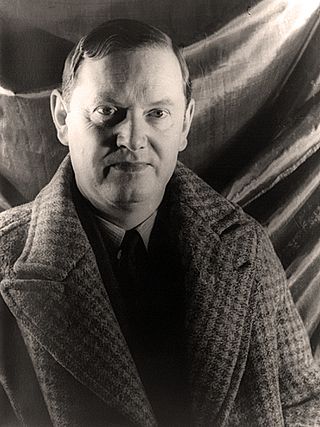
Arthur Evelyn St. John Waugh was an English writer of novels, biographies, and travel books; he was also a prolific journalist and book reviewer. His most famous works include the early satires Decline and Fall (1928) and A Handful of Dust (1934), the novel Brideshead Revisited (1945), and the Second World War trilogy Sword of Honour (1952–1961). He is recognised as one of the great prose stylists of the English language in the 20th century.

Henry Graham Greene was an English writer and journalist regarded by many as one of the leading English novelists of the 20th century. Combining literary acclaim with widespread popularity, Greene acquired a reputation early in his lifetime as a major writer, both of serious Catholic novels, and of thrillers. He was shortlisted for the Nobel Prize in Literature several times. Through 67 years of writing, which included over 25 novels, he explored the conflicting moral and political issues of the modern world. He was awarded the 1968 Shakespeare Prize and the 1981 Jerusalem Prize.

The English novel is an important part of English literature. This article mainly concerns novels, written in English, by novelists who were born or have spent a significant part of their lives in England, Scotland, Wales, or Northern Ireland. However, given the nature of the subject, this guideline has been applied with common sense, and reference is made to novels in other languages or novelists who are not primarily British, where appropriate.
This article contains information about the literary events and publications of 1957.

Ronald Arbuthnott Knox was an English Catholic priest, theologian, author, and radio broadcaster. Educated at Eton and Balliol College, Oxford, where he earned a high reputation as a classicist, Knox was ordained as a priest of the Church of England in 1912. He was a fellow and chaplain of Trinity College, Oxford until he resigned from those positions following his conversion to Catholicism in 1917. Knox became a Catholic priest in 1918, continuing in that capacity his scholarly and literary work.

Brideshead Revisited: The Sacred & Profane Memories of Captain Charles Ryder is a novel by English writer Evelyn Waugh, first published in 1945. It follows, from the 1920s to the early 1940s, the life and romances of the protagonist Charles Ryder, most especially his friendship with the Flytes, a family of wealthy English Catholics who live in a palatial mansion called Brideshead Castle. Ryder has relationships with two of the Flytes: Sebastian and Julia. The novel explores themes including Catholicism and nostalgia for the age of English aristocracy. A faithful and well-received television adaptation of the novel was produced in an 11-part miniseries by Granada Television in 1981.

Dame Muriel Sarah Spark was a Scottish novelist, short story writer, poet and essayist.

A Handful of Dust is a novel by the British writer Evelyn Waugh. First published in 1934, it is often grouped with the author's early, satirical comic novels for which he became famous in the pre–World War II years. Commentators have, however, drawn attention to its serious undertones, and have regarded it as a transitional work pointing towards Waugh's Catholic postwar fiction.

The Ordeal of Gilbert Pinfold is a novel by the British writer Evelyn Waugh, first published in July 1957. It is Waugh's penultimate full-length work of fiction, which the author called his "mad book"—a largely autobiographical account of a period of hallucinations caused by bromide intoxication that he experienced in the early months of 1954, recounted through his protagonist Gilbert Pinfold.

Aiding and Abetting is a novel by Muriel Spark published in 2000, six years before her death. Unlike her other novels, it is based partly on a documented occurrence; however, as the author states in a note, she takes liberties with the facts.

The Art of Fiction is a book of literary criticism by the British academic and novelist David Lodge. The chapters of the book first appeared in 1991-1992 as weekly columns in The Independent on Sunday and were eventually gathered into book form and published in 1992. The essays as they appear in the book have in many cases been expanded from their original format.
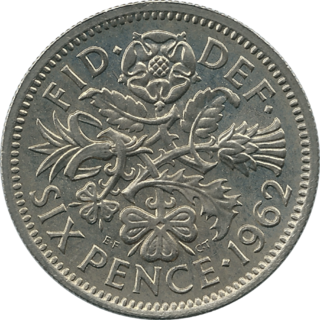
Up Jenkins, also known by the shortened name Jenkins, is a party game in which players conceal a coin in their palm as they slap it on a table with their bare hands. The goal of the game is for the players on the team without the coin to correctly identify which hand the coin is under. The game typically consists of two- to four-player teams, one on each side of a table. There are no official rules, so rules may vary widely, the game is often played with alcohol beverages with which to drink as a forfeit.

Every Day is Mother's Day is the first novel by British author Hilary Mantel, published in 1985 by Chatto and Windus. It was inspired in part by Hilary Mantel's own experiences as a social work assistant at a geriatric hospital which involved visits to patients in the community and access to case notes, the loss of which play an important part in the novel.
Michael Arditti is an English writer. He has written twelve novels, including Easter, The Enemy of the Good, Jubilate and The Breath of Night, and also a collection of short stories, Good Clean Fun. His most recent novel, The Anointed, was published in April 2020. He is a prolific literary critic and an occasional broadcaster for the BBC. Much of his work explores issues of spirituality and sexuality. He has been described by Philip Pullman as "our best chronicler of the rewards and pitfalls of present-day faith".
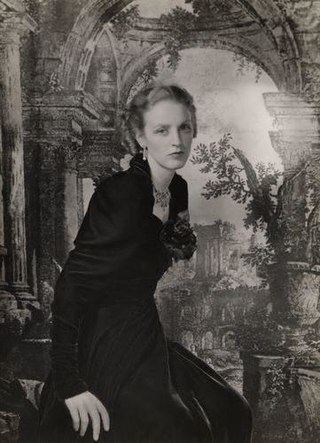
Lady Margaret Pansy Felicia Lamb, known as Lady Pansy Lamb was an English writer under her maiden name of Pansy Pakenham. A novelist, biographer, and translator of French poetry, she was the wife of the Australian-born painter Henry Lamb.

The Narcissus washstand is a piece of painted furniture made by the Victorian architect and designer William Burges in 1867. It was originally made for Burges's set of rooms at Buckingham Street and subsequently moved to his bedroom at The Tower House, the house he designed for himself in Holland Park in London. John Betjeman, later Poet Laureate and a leading champion of the art and architecture of the Victorian Gothic Revival, was left the remaining lease on the Tower House, including some of the furniture, by E. R. B. Graham in 1961. He gave the washstand, which he found in a second-hand shop in Lincoln, to the novelist Evelyn Waugh who featured it in his 1957 novel, The Ordeal of Gilbert Pinfold, mirroring a real-life incident when Waugh, in the grip of bromide poisoning, became convinced that an ornamental tap was missing from the washstand.
This article is focused on English-language literature rather than the literature of England, so that it includes writers from Scotland, Wales, and the whole of Ireland, as well as literature in English from former British colonies. It also includes, to some extent, the United States, though the main article for that is American literature.

The Catholic literary revival is a term that has been applied to a movement towards explicitly Catholic allegiance and themes among leading literary figures in France and England, roughly in the century from 1860 to 1960. This often involved conversion to Catholicism or a conversion-like return to the Catholic Church. The phenomenon is sometimes extended to the United States.
